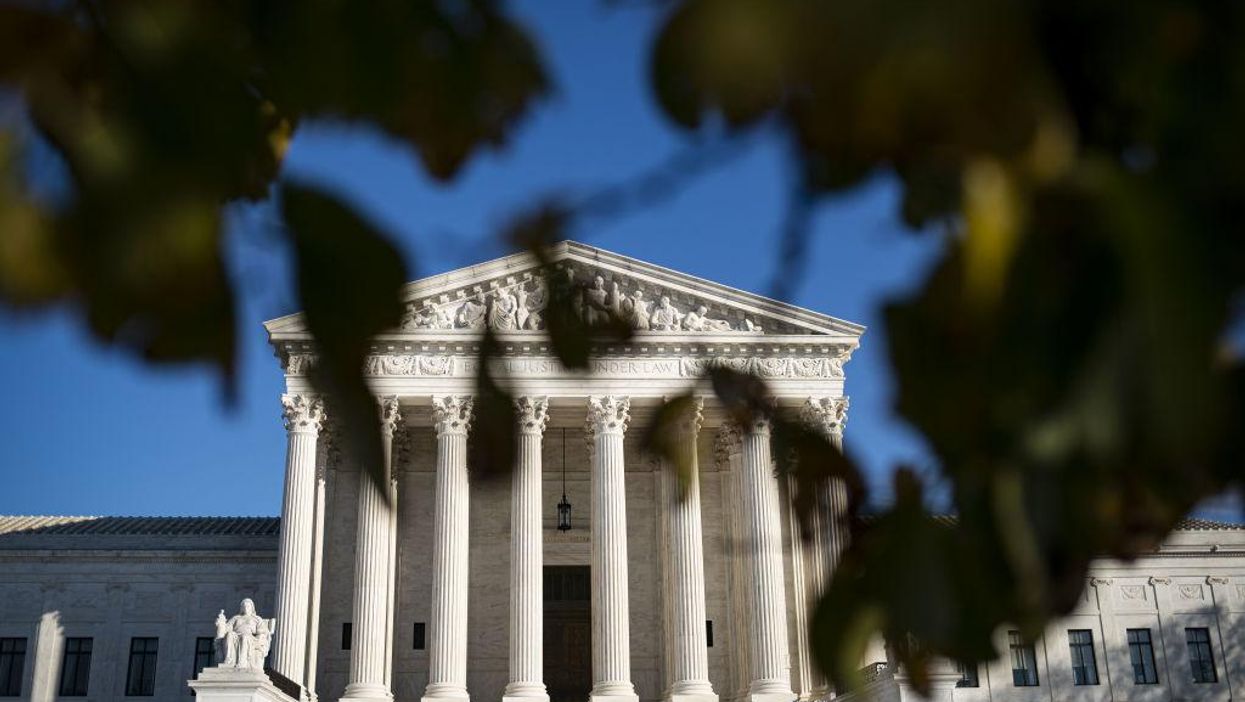
Al Drago/Bloomberg via Getty Images

Things are heating up
Attorneys general in several additional states — Alabama, Arkansas, Louisiana, and Missouri — appeared to throw their support behind a lawsuit filed by Texas Attorney General Ken Paxton this week alleging that four battleground states exploited the coronavirus pandemic to make unconstitutional changes to mail-in voting rules.
In the lawsuit filed directly with the Supreme Court late Monday night, Paxton accused officials in Georgia, Michigan, Pennsylvania, and Wisconsin of "violat[ing] statutes enacted by their duly elected legislatures" in order to allow for increased mail-in balloting, thus violating the equal protections clause and skewing the 2020 election results.
The lawsuit is seeking a delay to the Electoral College vote until investigations into potential election fraud can be completed.
"Their failure to abide by the rule of law casts a dark shadow of doubt over the outcome of the entire election," Paxton stated in a Tuesday news release about the complaint. "We now ask that the Supreme Court step in to correct this egregious error."
As of Wednesday morning, attorneys general in at least four additional states have expressed support for the lawsuit.
Alabama Attorney General Steve Marshall seemed to indicate on Twitter that his state would join the suit, if it was granted a hearing by the Supreme Court.
"The unconstitutional and fraudulent votes in other states not only affect the citizens of those states, they affect the citizens of all states — of the entire United States. Every unlawful vote counted, or lawful vote uncounted, debases and dilutes citizens' free exercise of the franchise," he wrote in a statement. "The State of Alabama will continue to pursue any legal remedy available to protect her people from such disenfranchisement."
Arkansas Attorney General Leslie Rutledge announced after reviewing the lawsuit that she would "support the motion by the State of Texas in all legally appropriate manners."
Louisiana Attorney General Jeff Landry also endorsed the lawsuit, noting in a statement that "millions of Louisiana citizens, and tens of millions of our fellow citizens in the country, have deep concerns regarding the conduct of the 2020 federal elections. Deeply rooted in these concerns is the fact that some states appear to have conducted their elections with a disregard to the U.S. Constitution."
"Louisiana citizens are damaged if elections in other states were conducted outside the confines of the Constitution while we obeyed the rules," he added.
Missouri Attorney General Eric Schmitt made no qualms about his state's position, saying plainly, "Missouri is in the fight."
"Election integrity is central to our republic. And I will defend it at every turn. As I have in other cases — I will help lead the effort in support of Texas' #SCOTUS filing today. Missouri is in the fight," Schmitt said in a tweet.
In his statement of support, Landry, the Louisiana attorney general, also made mention of a filing he and attorneys general from nine other states submitted last month that petitioned the Supreme Court to look into Pennsylvania's election conduct.
"In states like Pennsylvania, the judicial branch attempted to seize control of these duties and obligations and to set their own rules. These actions appear to be unconstitutional," he wrote. "If it is unconstitutional for Pennsylvania to take this action, it is similarly unconstitutional for other states to have done the same."
This filing is wholly separate from Texas' most recent filing, but nonetheless has been confused with the Texas filing by some on social media.